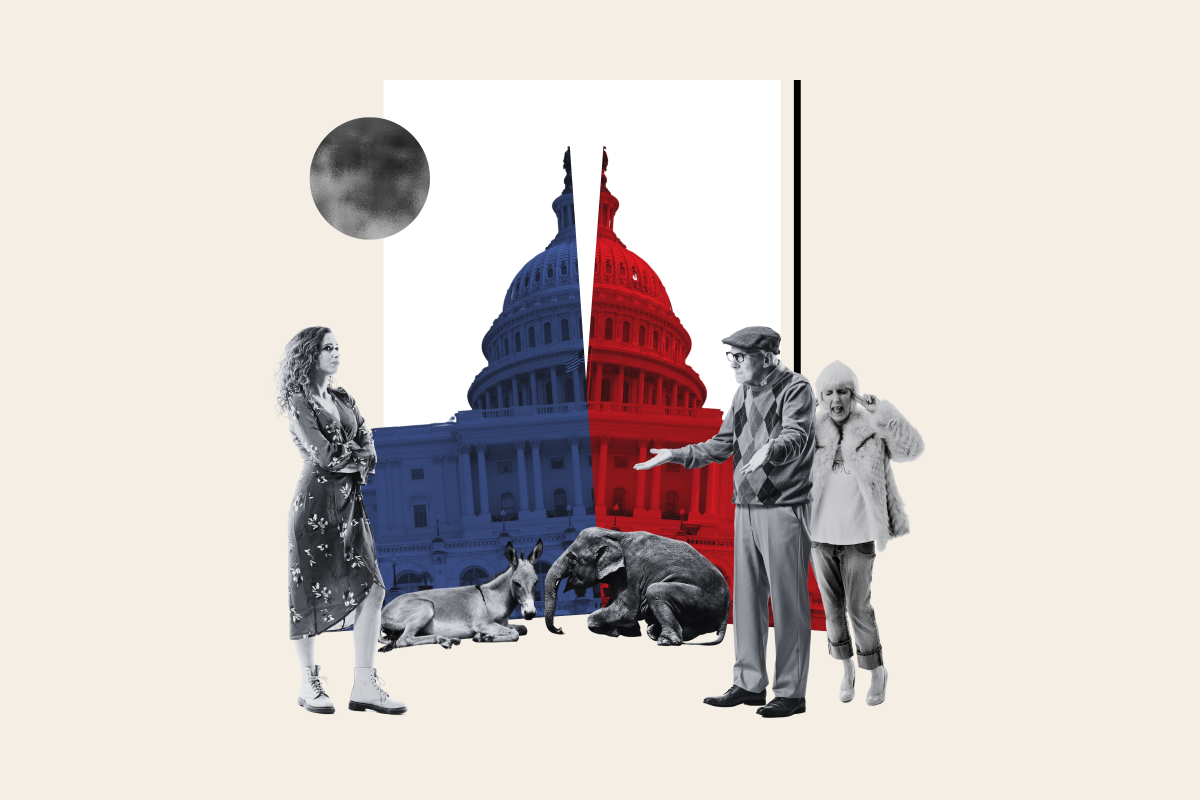In the grand tradition of family feuds, nothing quite stirs the pot like a good, old-fashioned political argument with the in-laws.
A survey says these spirited debates are now the leading cause of tension in American households—outpacing even disagreements about lifestyle choices and the ever-contentious “best way to load the dishwasher” debate.
An exclusive survey conducted for Newsweek by Talker Research reveals that politics is the number one topic of contention between Americans and their in-laws. The survey, conducted between August 27 and 29, sampled 1,000 Americans.
Of those surveyed, 31 percent of respondents reported arguing with their in-laws about politics, outpacing other contentious topics like lifestyle choices (22 percent) and disagreements about a partner (21 percent).
As the presidential race between Donald Trump and Kamala Harris gears up, political polarization in the U.S. is once again at the heart of many disagreements. These tensions can easily spill over into personal relationships, sometimes even causing family members to stop talking to each other.
Data from 2023 by the Pew Research Center found that negative sentiments dominate political discourse, with 79 percent of respondents using words like divisive or corrupt to describe the U.S. political system. Still, there are signs that people are more united about politics than is often suggested.
This past January, Newsweek asked readers for their thoughts on political division and found that many Americans share common ground more often than expected.
The article revealed there was unity in opinions over less divisive Supreme Court decisions, instances of bipartisanship in Congress and cultural phenomena like Taylor Swift’s Eras Tour.
But this latest survey shows that political discord remains a significant source of conflict, especially within families.
Other topics of dispute with in-laws were money (19 percent), parenting decisions (18 percent) and cultural issues (14 percent). Less common but still notable were disagreements over home-related issues (13 percent) and gender or sexuality (3 percent).

Photo-illustration by Newsweek/Getty
Licensed psychotherapist Tara Arutunian, who is based in New York state, shared her thoughts on the survey results.
“Identification with political ideals often represents a deep sense of how we view ourselves and the way society should work. These rights and wrongs are usually oversimplified and lack nuance, leading to disagreements,” she told Newsweek.
As for why these arguments are likely to crop up, Arutunian pointed to generational differences. But, above all, she suggested that political arguments are not likely to change opinions with a shouting match over the dinner table.
“In-laws may view themselves as more seasoned and knowledgeable than younger generations,” Arutunian said. “And younger generations may feel their in-laws just don’t understand the modern world. This type of impasse is not likely to shift, so agreeing to disagree and sidestepping future conversations will likely bring about more harmony in relationships.”
This random double-opt-in survey of 1,000 general population Americans was commissioned by Newsweek between August 27 and 29. It was conducted by market research company Talker Research, whose team members are members of the Market Research Society and the European Society for Opinion and Marketing Research.
👇Follow more 👇
👉 bdphone.com
👉 ultraactivation.com
👉 trainingreferral.com
👉 shaplafood.com
👉 bangladeshi.help
👉 www.forexdhaka.com
👉 uncommunication.com
👉 ultra-sim.com
👉 forexdhaka.com
👉 ultrafxfund.com
👉 ultractivation.com
👉 bdphoneonline.com




